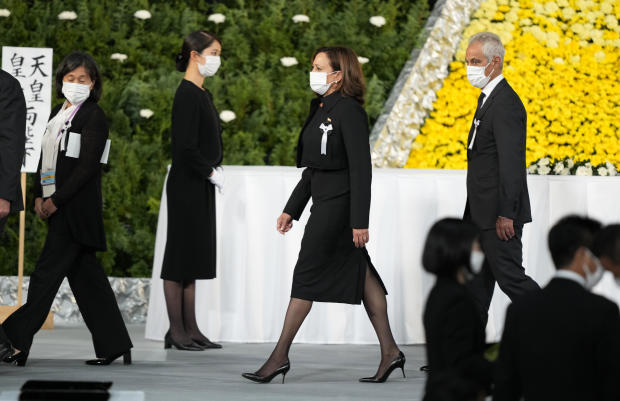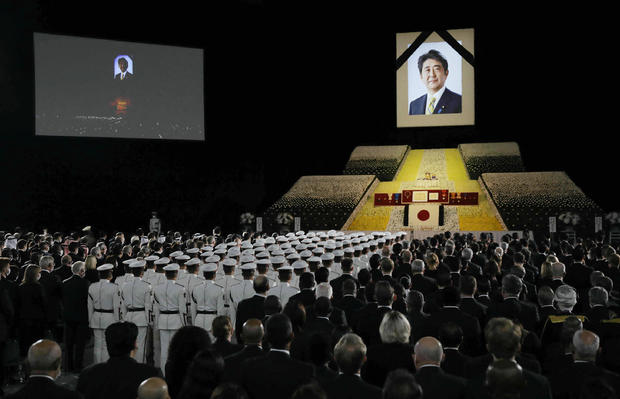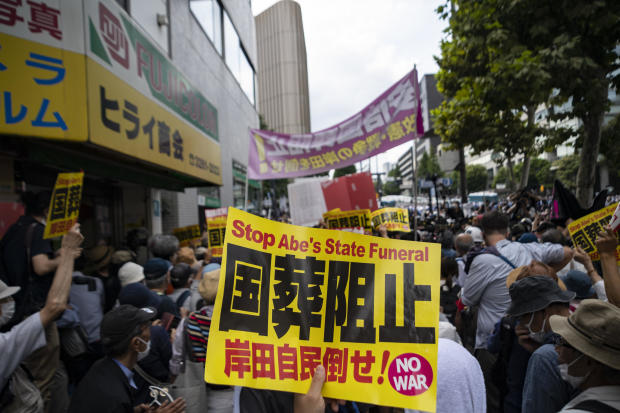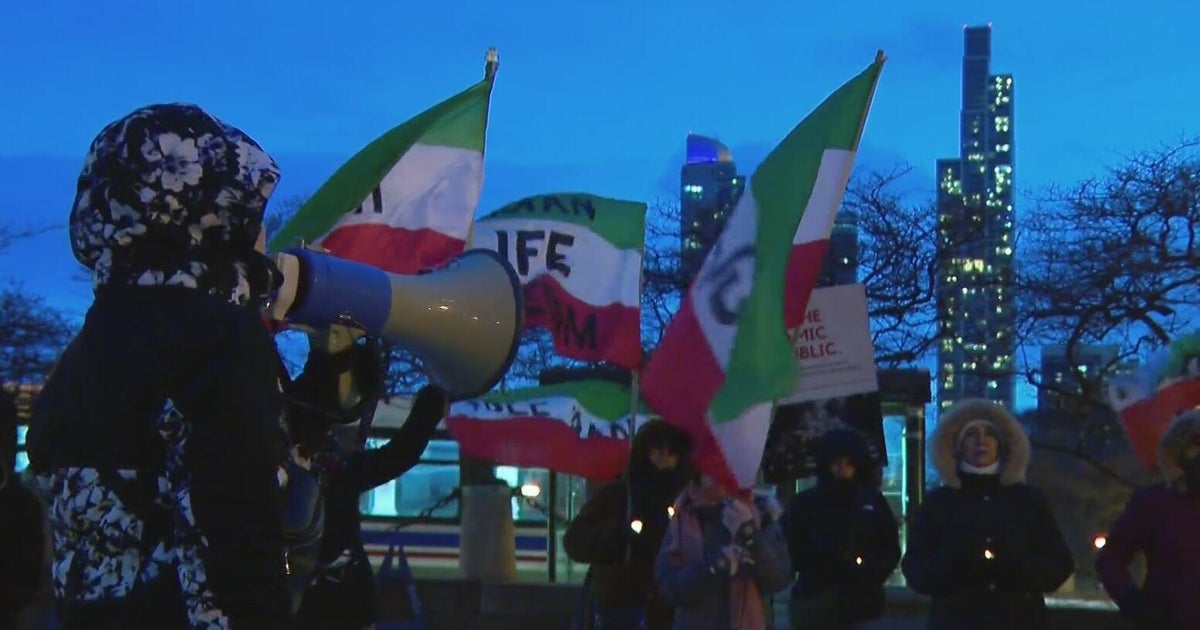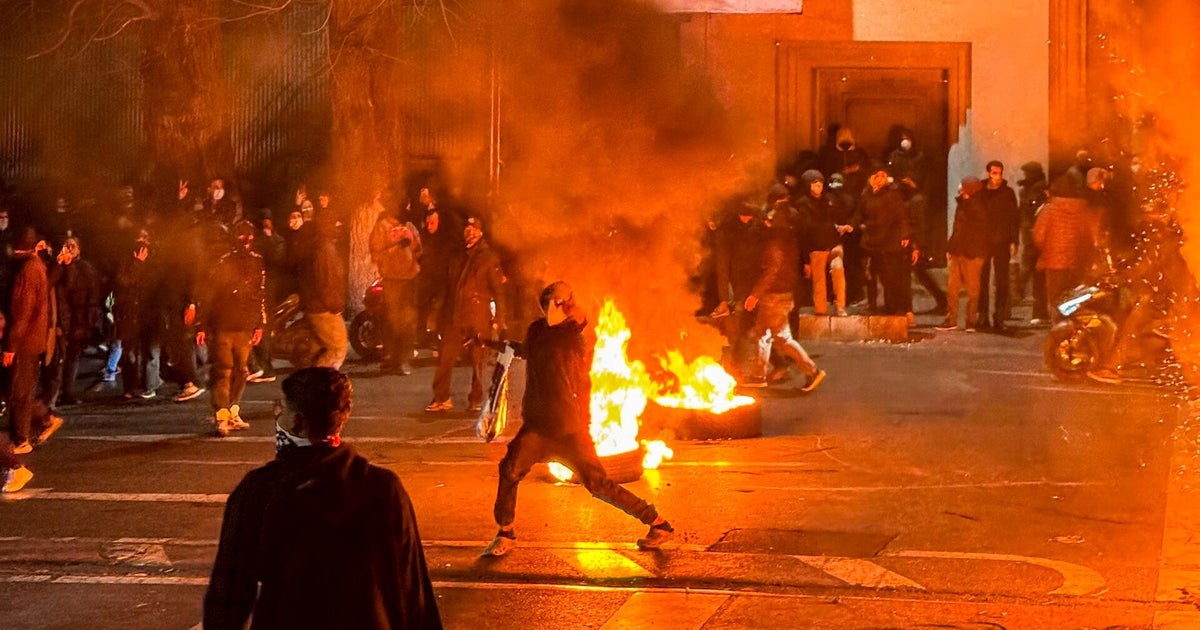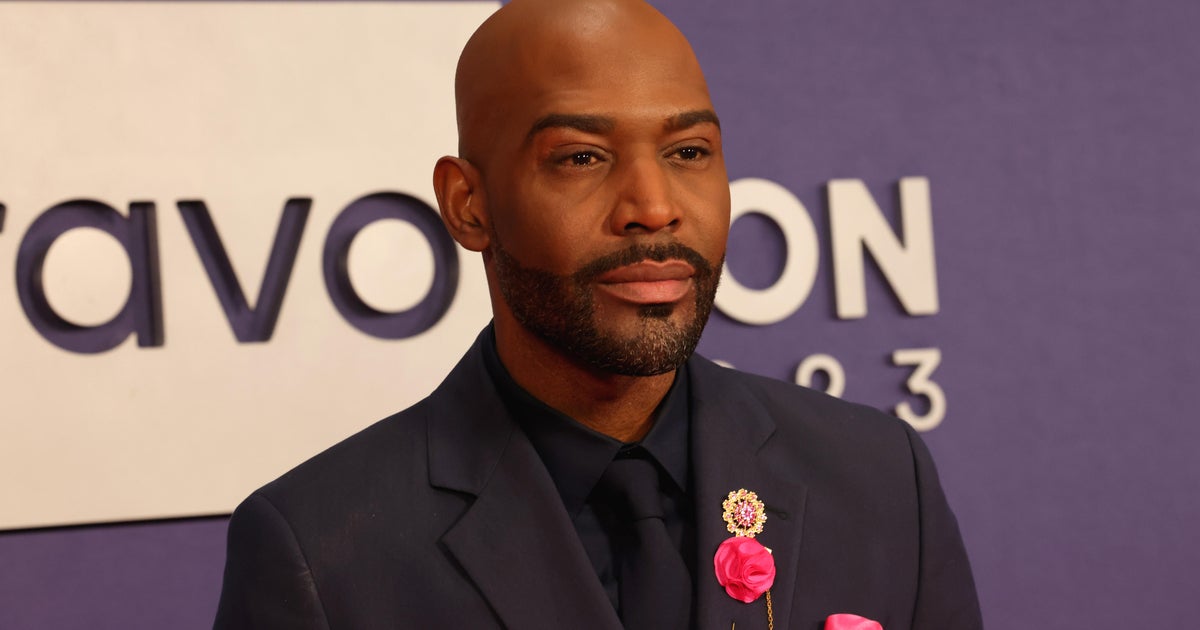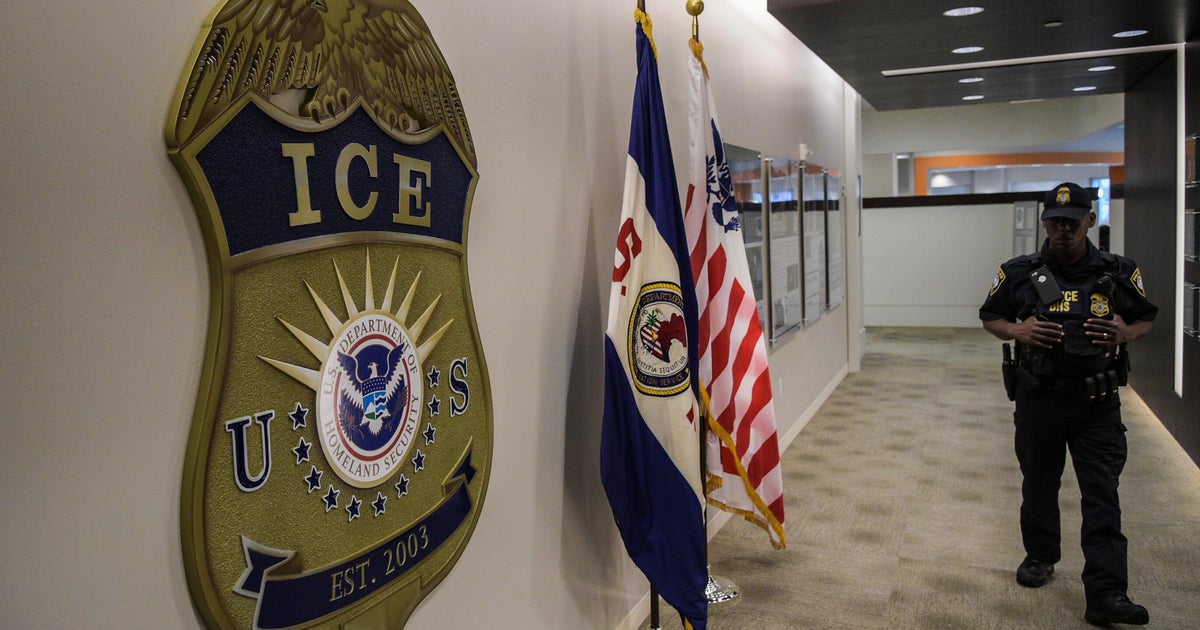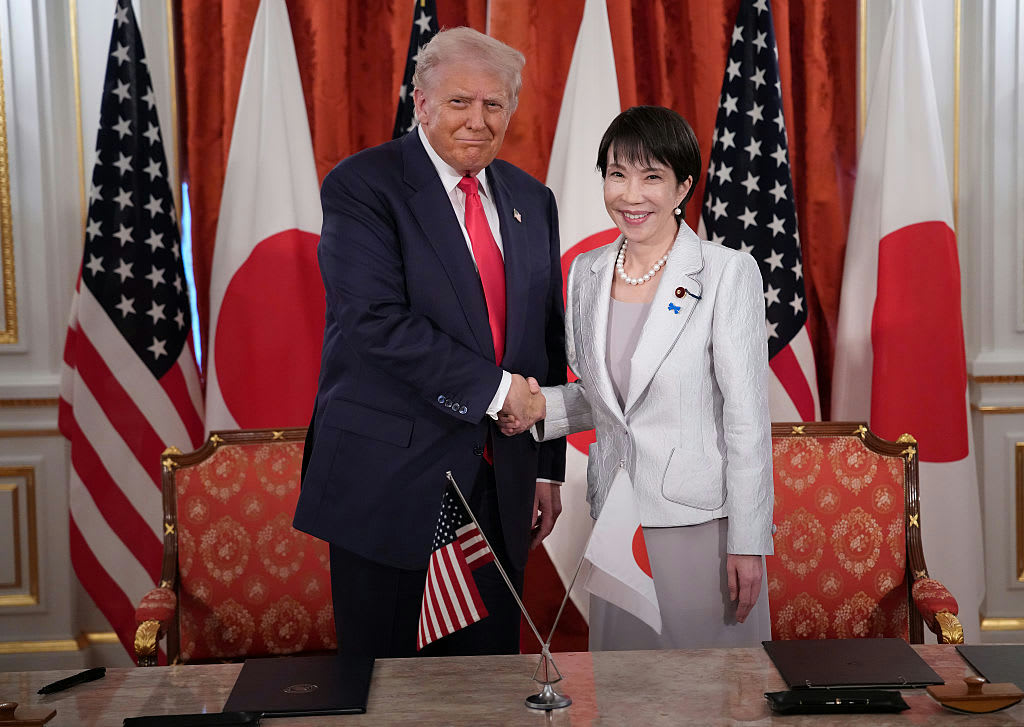Funeral for slain former Japan PM Shinzo Abe held amid protests, and new scrutiny of the "Moonies"
Tokyo — Bearing her husband's ashes in a brocaded box, former Japanese Prime Minister Shinzo Abe's widow entered Tokyo's Budokan arena to the sounds of a dirge and a 19-gun salute on Tuesday. Kept away by unusually tight security, scattered demonstrations against the staging of the $11 million state funeral for the controversial former leader, who was assassinated in July, continued to roil the country.
Inside the martial arts hall, a vast portrait of Japan's longest-serving prime minister looked down from a mountain of flowers at the more than 4,000 guests and dignitaries gathered for the funeral.
They watched a tribute video of Abe's political triumphs that highlighted his friendships with successive U.S. presidents, including Barack Obama and Donald Trump. Current Vice President Kamala Harris joined a long line of people laying flowers and paid her respects on behalf of the American people.
Abe was shot with a homemade gun as he gave a campaign speech in early July. Tetsuya Yamagami, a 42-year-old former member of the Japan Self-Defense Forces, is now waiting to be tried for murder, but his alleged crime has brought an unexpected fallout.
It has ignited an epic scandal focused on the right-wing Unification Church. Popularly known as the Moonies, the organization's ties to former Prime Minister Abe's party, and its high-pressure tactics to raise money from vulnerable members, have all come under intense new scrutiny.
Yamagami told police that his mother, a Moonie, gave the church so much money that she bankrupted their family.
The church has since said that it has not calculated the exact amount it received from Yamagami's mother, but that it had returned 50 million yen (almost $350,000) to her over the decade leading up to 2014.
Yamagami said he killed Abe, according to officials, over the former premier's links to the church, which he referred to as a religious cult. He said it was a 2021 video of Abe speaking to and praising the group that set him off.
Founded in the 1950's by the South Korean Reverend Sun Yung Moon, the church claims to have 600,000 adherents in Japan, though lawyers for former members estimate that only about 10% of that number are active.
Yamagami's story dominated the headlines all summer, with Japanese media concentrated on the connections between the church and politicians. A Kyodo News Agency report said at least 100 of the 712 members of Japan's Parliament have admitted having ties to the church, including using members as unpaid campaign workers and accepting donations.
In one tabloid spread, supporters called his action not a crime, but "revenge."
There have been demonstrations outside the church's Tokyo headquarters, and former members have come forward to describe their experiences. A self-described homemaker in her 60s, who agreed to speak to CBS News on condition of anonymity, fearing church reprisals, said she was coerced into "donating" more than $100,000 to the Moonies.
"I have four kids," she said. "That money was supposed to be for their education. But I was talked into giving it all away to the church."
The woman said she was lured by an unusually persistent missionary who "dropped by" repeatedly. Careful not to identify herself as a Moonie, the missionary invited her to an innocuous-sounding lecture on genealogy. Five years later, she had drained her family savings and helped draw other converts, lured in by free palm readings that "discovered" their destiny was about to change — with church help.
The victim later hired a lawyer and was able to retrieve the full amount. She called the group a "money-making machine." Her lawyer showed CBS News what's known in Japan as "spiritual merchandise" - an array of church products, from a bulky $20,000 urn to a hefty volume of the founder's teachings, sold for $30,000.
Jeff Hall lectures at the Kanda University of International Studies in Japanese politics and culture, and has closely followed the assassination and its aftermath.
"Until now this was mainly something that wasn't discussed in the media outside of tabloids. But now every media outlet in the country is reporting on how the Unification Church has victimized people," he told CBS News. "The church will forever be targeted by this scandal, and it will have a lot of trouble getting new recruits in Japan."
Hall said that since the 1960s, Japan has been the source of billions of dollars of funding for the church, used to invest in businesses including the Washington Times, and plowed into building ties with politicians around the world.
While Japan has many other self-styled "new religions," the Unification Church has been notably aggressive in its fundraising, even after 2009, when church officials said they had reformed their tactics.
The peculiarities of the Japanese political system, Hall said, have made it easy for the church to woo parliamentarians by offering them free labor during election campaigns and providing reliable voting blocs.
"Many people would consider it an unseemly relationship, or a relationship that pushes the ruling party towards views on things like gay marriage or on sex education, on other issues, farther to the right than most people would be comfortable with," Hall said.
So in a way, Yamagami may have got what he wanted. But in his determination to hurt the church, he killed a man who will go down in history as the most powerful and memorable leader of modern Japan.

